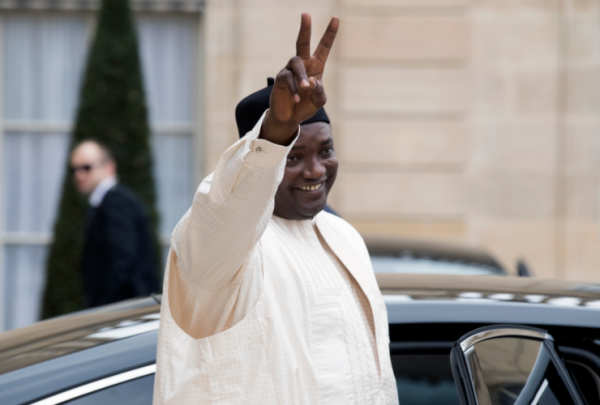Journalists have not had an easy time in the 20 years since Yahya Jammeh and his fellow army officers seized power in Gambia. Writers and editors have endured harassment, torture and imprisonment – some have left the country to escape persecution.
In the one of the latest assaults on journalism, the editor and a contributor to the Gambia Voice were charged with conspiracy and writing “false news” in connection with an article they published about young ruling party activists who said they were defecting to the opposition.
Voice chief editor Musa S. Sheriff has stood by the article, which appeared in the Dec. 6-8 edition of the thrice-weekly newspaper. Written by freelancer Sainey M.K. Marenah, the reports describes a meeting where 19 members of the “Green Youths”, a group loyal to the ruling Alliance of Patriotic Re-Orientation and Construction (APRC), announced that they planned to join the United Democratic Party (UDP).
While 19 defections would hardly appear to constitute a revolution, the article was evidently enough to rattle the authorities in the West African country. Sheriff and Marenah were arraigned in a magistrate’s court on Jan. 16 after spending three days in jail. Their identity cards were confiscated and they were ordered to pay 20,000 dalasi, or €382, as bond. The journalists were due in court this week, but their trial was postponed until Feb. 4, Sheriff and other journalists informed me in an exchange of e-mails. Both men have pleaded not guilty to the charges.
According to the criminal complaint filed with the Banjul court, the two journalists are charged with conspiring to commit a felony for publishing the “Green Youths” article: specifically, “publication of false news with intent to cause fear and alarm to the public” in violation of Section 59(1) of the 2009 criminal code.
Sheriff is no newcomer to trouble. The newspaper editor told me that police arrested and tortured him in 2006, and that intelligence agents previously detained him while he worked as a journalist at another paper.
IPI, along with human rights groups and other press freedom organisations, has long pressured Jammeh to loosen his grip on the country’s struggling independent press. Perhaps that pressure is beginning to work. At the start of the year, the government cleared the way for the popular Teranga FM station to resume broadcasts and for the daily Standard to start publishing again. Both were shut down by the Jammeh regime in 2012.
Yet Sheriff is less hopeful. “Despite international, regional and national pressure there is no improvement from the government of Gambia in the areas of freedom of the press,” the Voice editor told me by e-mail. “Journalists working in this country are working daily under threat.”
The “Green Youths,” according to Sheriff’s newspaper, declared support for another party because the ruling APRC was engaging in “tribal politics” and is failing to live up to its commitments to improve the lives of young Gambians. Predicting whether they succeed in a power shift is guesswork – elections are not due for another two years and at 48, Jammeh is still a young man whose party dominates politics.
But what is more clear is that the APRC has failed to live up to its third political manifesto, released ahead of the last presidential election in November 2011. According to the document, published in the Point newspaper, the party pledged “to uphold and defend the human rights and fundamental freedoms enshrined in Chapter IV of the Constitution of the Second Republic, particularly, the right to life, personal liberty, property, freedom of speech, association, assembly, movement, privacy, equality before the law and freedom of a responsible press.”
What is missing from the manifesto is any mention of having a government that is responsible to its people and their rights as citizens.
Timothy Spence is the IPI’s senior press freedom advisor for Africa and the Middle East.


